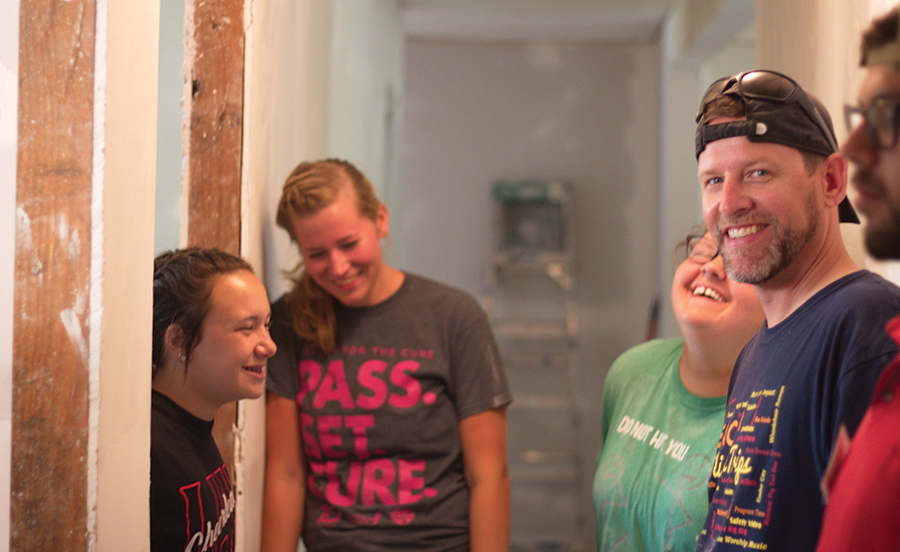When Hurricane Harvey stormed into Texas in August 2017, it indiscriminately destroyed property and disrupted family and work life in all manner of neighborhoods. A record-breaking disaster is no respecter of persons, but its aftermath is. “I have two master’s degrees and I could barely figure it out,” confessed the Rev. Ed Gomez, vicar of San Pablo, Houston, regarding the maze of systems a storm survivor must wade through attempting to restore property and life. For the most vulnerable, recovering from Harvey is exponentially more difficult and delayed, if recovery begins at all.

At the end of 2018, thousands continue to live in mold-filled, unsafe homes, many with no basic utilities. “There are families still living in flooded homes that have not been mucked out,” said Debbie Allensworth,
The mission of the Diocese of Texas’ Hurricane Harvey Recovery Program is to encourage and equip churches and missional communities to engage in long-term Harvey recovery with their most under-resourced neighbors for whom conventional disaster recovery mechanisms are not effective.
Bishop Andy Doyle envisioned “new and deepening relationships between church members and Harvey survivors that will be a means of transformation for individuals and communities, both for the givers and receivers of assistance through the program.” Powered by generous grants from Episcopal Relief & Development and the Diocese of Texas Quin Foundation, this transformation has come to life and continues to spread across the Diocese. Following are just a few glimpses from
The Abundant Harvest, a food truck ministry of St. Isidore, north of Houston, built relationships in several vulnerable communities prior to Harvey, according to Molly Carr,
San Pablo in Houston likewise discovered their “little piece” on which to focus Harvey recovery. Low-income families near the church not only lost homes and possessions in the storm
With a grant from the Hurricane Harvey Recovery Program, San Pablo hired
St. Andrew’s, Pearland is another church that arrived at the Harvey mission field with a well-earned reputation for service and trustworthiness. For more than 20 years, the Rev. Jim Liberatore and his associate Debbie Allensworth have cultivated community relationships beyond the church walls. Through collaborations with local school districts, county agencies, Builders Without Borders of Texas, and Sewa International, St. Andrew’s became a center of recovery activity.
Liberatore and Allensworth are “pastors to the community,” even to those with other church affiliations or no religious affiliation. When Harvey hit, St. Andrew’s stepped up for families who fell through the cracks of conventional disaster recovery systems. By listening, consistently showing up, and developing a recovery plan, this church builds real relationships with flood survivors. “We’re here for the long term,” Liberatore said.
One of St. Andrew’s unique storm recovery projects is in a rural farming community in southern Brazoria County where St. Andrew’s is helping to build and
Returning families to
Each church community in the Diocese of Texas possesses unique gifts that are invaluable resources for disaster response. To all who have ears to hear, the Rev. Jim Liberatore proclaims “Harvey recovery is not over!” If you hear a call to partner your God-given talents with the Hurricane Harvey Recovery Program, please contact harveyrecovery@epicenter.org. It is only through its many members that the Body of Christ in the Diocese of Texas can continue to walk the long road to recovery alongside its neighbors in need.
